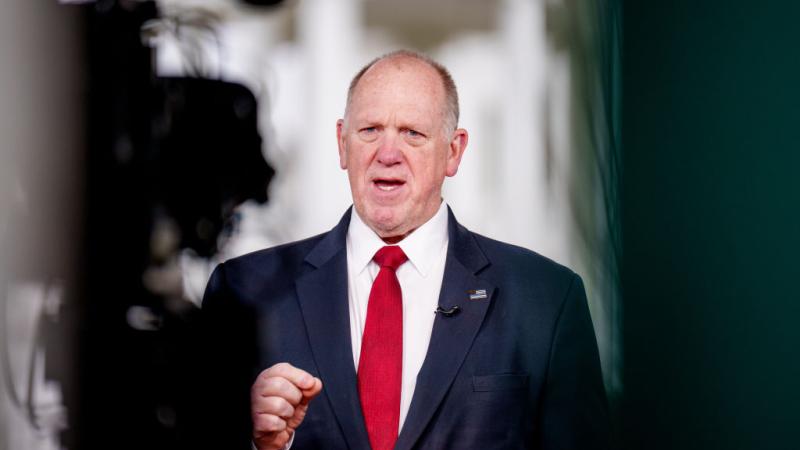TX Senate bans nationals from countries named national security threats from buying Texas land
The Legislature acted after a Chinese billionaire and former Chinese People's Liberation Army general bought over 130,000 acres of land just miles from Laughlin Air Force base in Val Verde County, the largest air force pilot training base in the U.S.
Most Democrats and one Republican from Lubbock opposed a bill that bans foreign nationals from countries posing national security threats to the United States from purchasing land in Texas.
The bill, filed by Sen. Louis Kolkhorst, R-Brenham, passed by a vote of 19-12 and has been received by the House.
Kolkhorst filed the bill after the Texas Legislature unanimously passed the Lone Star Infrastructure Protection Act banning all contracts or agreements with foreign-owned companies related to critical infrastructure in Texas. Gov. Greg Abbott signed it into law in 2021.
The Legislature acted after a Chinese billionaire and former Chinese People's Liberation Army general bought over 130,000 acres of land just miles from Laughlin Air Force base in Val Verde County, the largest air force pilot training base in the U.S.
According to a 2022 National Association of Realtors report, the third greatest amount of U.S. land purchased by foreign buyers from April 2021 to March 2022 was in Texas.
According to the USDA, "Foreign persons held an interest in approximately 40 million acres of U.S. agricultural land as of December 31, 2021," up from 37.6 million acres in 2020. Texas had the largest increase in foreign-held agricultural acres in 2021 of nearly 549,000 acres, according to the report.
Kolkhorst's bill also follows an executive order signed by Florida Gov. Ron DeSantis prohibiting government entities from procuring technology products and services from companies owned by, controlled by or domiciled in the seven foreign countries of concern: China, Cuba, Iran, North Korea, Syria, Russia and Venezuela. In 2021, Florida also changed its retirement system fund strategy to ensure state funds weren't invested in Chinese or "woke corporations."
"Private property rights are extremely important to maintaining liberty," Kolkhorst said, "unfortunately, some of the authoritarian regimes that pose a threat to the United States do not respect private property rights and are willing to use these rights to undermine our constitutional republic."
The bill only applies to foreign representatives who are not legally present in the U.S. and from a country identified as a national security threat listed on the National Threat Assessment (NTA) for three consecutive years.
Initially, the bill listed countries of concern as China, Russia, North Korea, and Iran. However, members and constituents raised concerns and the bill was amended to no longer list countries but instead include the NTA language. It was also amended to narrow the types of land where foreign ownership could pose the greatest national security threat to include agricultural, timber, oil and gas, and mineral-bearing lands.
The amendments keep "alive the American dream of home ownership to all, the ability to own a business, the ability to own a homestead and 20 acres, the ability of anyone that's legally here in the United States to own that land and live that dream," Kolkhorst said in a statement. Violators of the law would have their property placed into receivership with the proceeds and profits going to the owners, she said.
Senators debated the bill for two days. Sen. Nathan Johnson, D-Dallas, who opposed the bill, thanked Kolkhorst for making many improvements but said they weren't enough to garner his support.
"Despite all the good, patient, thoughtful work that's been done on amending" the bill, he said, he was still "convinced" it would still "send a hostile message … increase tensions, and suspicions, and resentment, and biases among Texans … ." He also said he didn't think the bill would have "the desirable result that is intended."
Prior to the bill passing, Kolkhorst gave a statement on the Senate floor, saying in part, "This bill should not divide us. This bill should unite us. It should allow us to come together to agree that Texas must do its part in national, in the national security conversation. We can agree to say no to hostile nations that seek harm to our state and prevent them from accessing our valuable land. To prevent them from buying 147—40,000 acres that they accumulated over a period of two years next to Laughlin Air Force Base. We should all be able to agree to that."
Eighteen senators agreed with her, including Sen. Juan Hinojosa, D-McAllen. One Republican representing a rural area of Texas where farmland is increasingly being sold to corporations, Charles Perry, joined 11 Democrats in voting against the bill.














